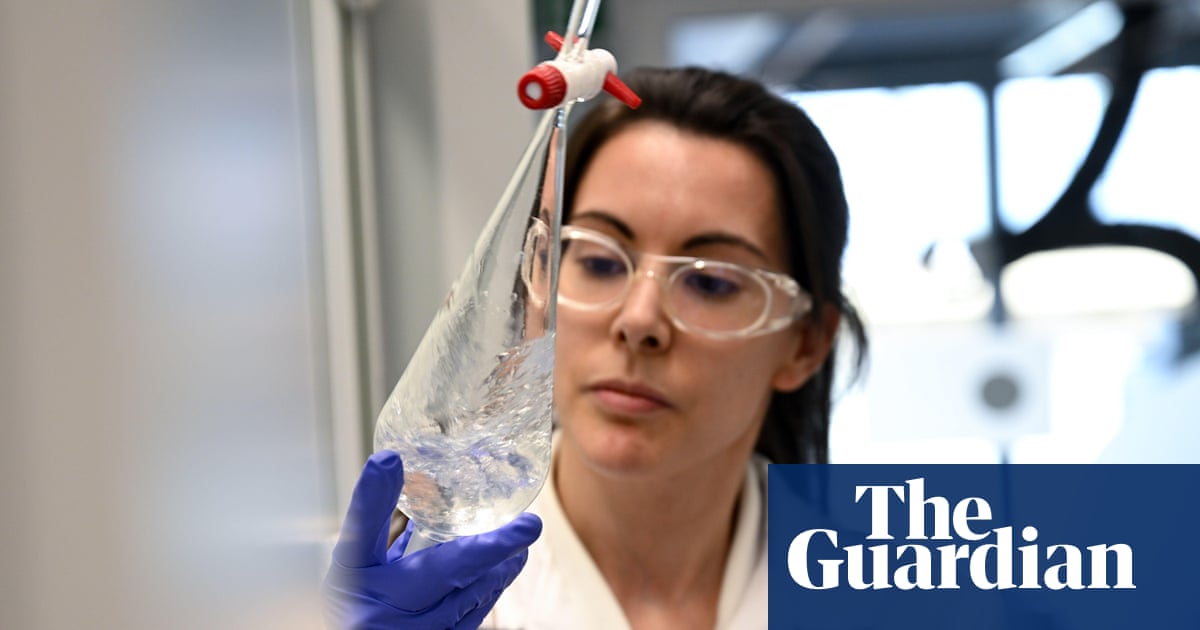Sir John Bell, a prominent scientist who brought business and government together during the Covid-19 vaccine rollout, has warned that other big pharmaceutical companies will stop investing in the UK, after the US drugmaker MSD’s decision to scrap its planned £1bn London research centre.
Bell, a former regius professor of medicine at the University of Oxford, told Today on BBC Radio 4 that he had spoken to several chief executives of large companies in the past six months and that they were “all in the same space. And that is: they’re not going to do any more investing in the UK.”
He made the comments a day after MSD, known as Merck in the US, said it would pull out of research & development (R&D) in the UK with the loss of 125 science jobs, citing Britain’s lack of progress on life science investment and the “overall undervaluation of innovative medicines and vaccines by successive UK governments”.
The Canadian immunologist, who was an early member of the government’s vaccine taskforce and previously worked on Oxford University’s Covid vaccine with AstraZeneca, said: “This is a sign of something which has been evolving over a little while, but it’s going to now, I think, lead to a whole series of events which will mean that the industry is going to stop investing in the UK.”
He said the pharma industry was “in real trouble in terms of pricing, particularly in America”, where Donald Trump has put pressure on companies to lower prices, and not to sell medications at a much lower price elsewhere.
A big issue is the amount of money the NHS spends on medicines, Bell said.
“Ten years ago, we used to spend 15% of our healthcare spend on pharmaceuticals. Now it’s 9%. The rest of the world, the OECD, are sitting between 14% and 20%,” he added.
Long-running negotiations between the UK government and drugmakers over the cost of medicines broke down last month.
Under the voluntary pricing and access scheme, companies agree to pay back to the NHS a certain amount of their UK revenue made from branded drugs. They are now paying back between one-quarter and one-third of their UK revenue (23.5% to 35.6%), compared with rebate rates of 5.7% in France and 7% in Germany, according to the Association of the British Pharmaceutical Industry.
Bell said Britain had “great science in academia” and “great biotech companies” and infrastructure funded by government, “but without large companies, it isn’t going to work”.
He added: “The large companies do have to work in a system where they can sell their products, and if they can’t sell their products here, they’ll go and do their business somewhere else.”
The science minister, Ian Murray, told MPs in the Commons that MSD’s decision was “deeply disappointing and a commercial decision for them” but added that it was part of global cost cuts. He pointed to changes in “US and international fundamentals” that were affecting the life sciences sector.
after newsletter promotion
Murray said the fall in NHS spending on medicines was due to previous Conservative governments: it declined from 15% of overall healthcare spending to 9% in the last 15 years.
Sharon Todd, chief executive of the Society of Chemical Industry, said the loss of MSD’s R&D operations in the UK and reports that AstraZeneca could jump ship to the US “should be setting off alarm bells in government”.
She added: “The growing exodus of large-scale businesses from the UK is immensely alarming. Science-based businesses such as pharmaceutical and chemical companies have not only a rich, proud heritage in Britain, but are critical to driving growth in the economy and building our national resilience.”
Bell said the UK had been in this situation before, and “solved [the problems] by being a bit more creative for what we did”. He referred to the cancer drugs fund, introduced in 2011 by David Cameron, then prime minister. The UK had fallen behind on cancer medicinesand the fund enabled it to buy innovative, more expensive drugs.
Bell has just stood down as president of the Ellison Institute of Technology, founded by the US billionaire Larry Ellison, who briefly overtook Elon Musk as the world’s richest man on Wednesday. At the start of this month the institute launched a new AI vaccine research programme with Oxford.
Quick Guide
Contact Guardian Business about this story
Show
The best public interest journalism relies on first-hand accounts from people in the know.
If you have something to share on this subject you can contact the Business team confidentially using the following methods.
Secure Messaging in the Guardian app
The Guardian app has a tool to send tips about stories. Messages are end to end encrypted and concealed within the routine activity that every Guardian mobile app performs. This prevents an observer from knowing that you are communicating with us at all, let alone what is being said.
If you don’t already have the Guardian app, download it (iOS/Android) and go to the menu. Scroll down and click on Secure Messaging. When asked who you wish to contact please select the Guardian Business team.
SecureDrop, instant messengers, email, telephone and post
If you can safely use the tor network without being observed or monitored you can send messages and documents to the Guardian via our SecureDrop platform.
Finally, our guide at theguardian.com/tips lists several ways to contact us securely, and discusses the pros and cons of each.
